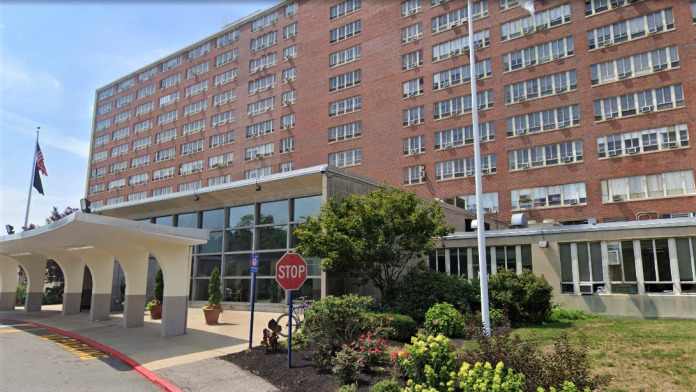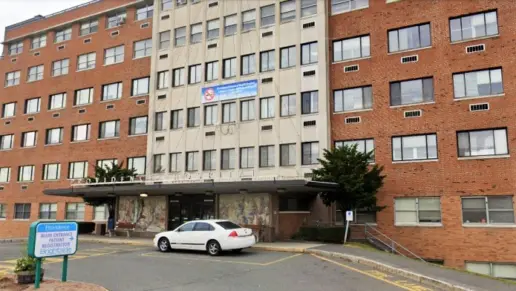I graduated Women's Hope 20+yrs ago. I went on to the Shepherd house, the greatest assets that Victory program has for women, and within 2 yrs. I went into total + complete recovery. Please do not count out methadone maintenance treatment as I am on it and a full-time mother ...
About Victory Programs – Women’s Hope
The Victory Programs Women's Hope is a branch of the Victory Programs campus that exclusively serves women and is located in Boston, Massatchusstettts. In addition to alcohol and drug abuse treatment, they also provide support for mental health issues to provide stability for women in crisis. It's centrally located in the city and offers modern amenities in a relaxed atmosphere.
Women’s Hope is part of a specialized suite of short-term treatments that provide women the guidance they need to take control of their lives. Their philosophy of “housing first” helps stabilize clients before treatment by assisting them in finding a safe living space.
The Heart of Women’s Hope is an IOP program focused on intensive therapy (group and individual) to uncover underlying triggers of addictive behavior and teach healthy coping mechanisms to replace substance abuse. Clients attend the facility a few hours a day throughout the week, with the schedule determined by their needs. Such a rigid structure helps keep clients focused on recovery and instills a sense of personal responsibility.
Medical case management sees staff and patient advocates collaborate with clients to develop a comprehensive care plan to follow during and after treatment. It often includes connecting with local services from other providers, such as specialists in behavioral therapy. Clients are encouraged to actively participate by voicing their interests and concerns to help guide plan development.
Women who experience mild to severe symptoms from mental health disorders may get referred to the Women’s Hope program to receive co-occurring disorder treatment. New or pre-existing mental health conditions often exacerbate addictive behaviors, so this program provides a broader range of therapies and treatments to help address these problems. In addition, co-occurring disorder treatment has been shown to reduce the risk of relapse.
All Victory Program employees who are licensed, accredited, or otherwise certified are reviewed and verified by the Massachusetts Division of Professional Licensure.
 Payment Options
Payment Options
Medicaid
Private insurance
Self-pay options
Financial aid
Financing available
Medicare
 Levels of Care
Levels of Care
 Medically Assisted Detox
Medically Assisted Detox
Drug and alcohol addiction often takes a heavy toll on one's body. Over time, a physical dependence can develop, meaning the body physiologically needs the substance to function. Detox is the process of removing drugs and/or alcohol from the body, a process that can be lethal if mismanaged. Medical detox is done by licensed medical professionals who monitor vital signs and keep you safe, healthy, and as comfortable as possible as you go through detox and withdrawal.
 Inpatient
Inpatient
Residential treatment programs are those that offer housing and meals in addition to substance abuse treatment. Rehab facilities that offer residential treatment allow patients to focus solely on recovery, in an environment totally separate from their lives. Some rehab centers specialize in short-term residential treatment (a few days to a week or two), while others solely provide treatment on a long-term basis (several weeks to months). Some offer both, and tailor treatment to the patient's individual requirements.
 Programs
Programs
 Adult program
Adult program
 HIV/AIDS program
HIV/AIDS program
 LGBTQ program
LGBTQ program
 Postpartum program
Postpartum program
 Program for women
Program for women
 Young adult program
Young adult program
 Treatment
Treatment
 Alcoholism
Alcoholism
The goal of treatment for alcoholism is abstinence. Those with poor social support, poor motivation, or psychiatric disorders tend to relapse within a few years of treatment. For these people, success is measured by longer periods of abstinence, reduced use of alcohol, better health, and improved social functioning. Recovery and Maintenance are usually based on 12 step programs and AA meetings.
 Drug Addiction
Drug Addiction
Addiction is a highly complex problem, and drug rehab in Massachusetts is often necessary to address it. These programs treat physical, mental, and relational issues that are involved. Treatment empowers individuals to manage these issues without the use of drugs.
 Dual Diagnosis
Dual Diagnosis
Many of those suffering from addiction also suffer from mental or emotional illnesses like schizophrenia, bipolar disorder, depression, or anxiety disorders. Rehab and other substance abuse facilities treating those with a dual diagnosis or co-occurring disorder administer psychiatric treatment to address the person's mental health issue in addition to drug and alcohol rehabilitation.
 Opioid Addiction
Opioid Addiction
Opioid rehabs specialize in supporting those recovering from opioid addiction. They treat those suffering from addiction to illegal opioids like heroin, as well as prescription drugs like oxycodone. These centers typically combine both physical as well as mental and emotional support to help stop addiction. Physical support often includes medical detox and subsequent medical support (including medication), and mental support includes in-depth therapy to address the underlying causes of addiction.
 Substance Abuse
Substance Abuse
Substance rehabs focus on helping individuals recover from substance abuse, including alcohol and drug addiction (both illegal and prescription drugs). They often include the opportunity to engage in both individual as well as group therapy.
 Clinical Services
Clinical Services
 Family Therapy
Family Therapy
Research clearly demonstrates that recovery is far more successful and sustainable when loved ones like family members participate in rehab and substance abuse treatment. Genetic factors may be at play when it comes to drug and alcohol addiction, as well as mental health issues. Family dynamics often play a critical role in addiction triggers, and if properly educated, family members can be a strong source of support when it comes to rehabilitation.
 Trauma Therapy
Trauma Therapy
Trauma therapy addresses traumatic incidents from a client's past that are likely affecting their present-day experience. Trauma is often one of the primary triggers and potential causes of addiction, and can stem from child sexual abuse, domestic violence, having a parent with a mental illness, losing one or both parents at a young age, teenage or adult sexual assault, or any number of other factors. The purpose of trauma therapy is to allow a patient to process trauma and move through and past it, with the help of trained and compassionate mental health professionals.



